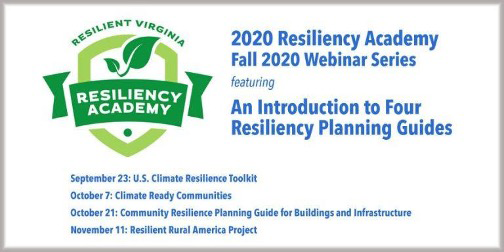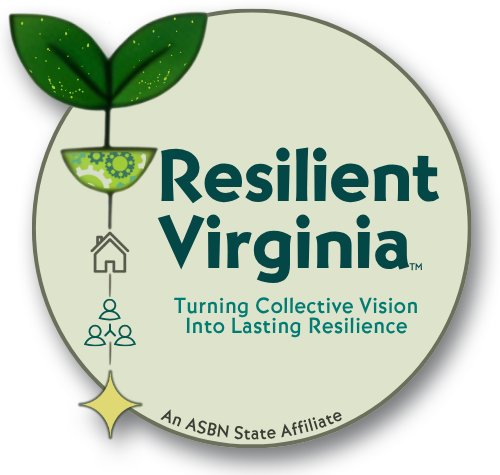Strengthening Resilience Knowledge
Resiliency Academy
Since 2020, the Resiliency Academy has offered accessible, timely webinar series that strengthen resilience knowledge, practical skills, and leadership capacity for professionals across sectors. Since its launch, the Academy has experienced significant and sustained growth in participation.
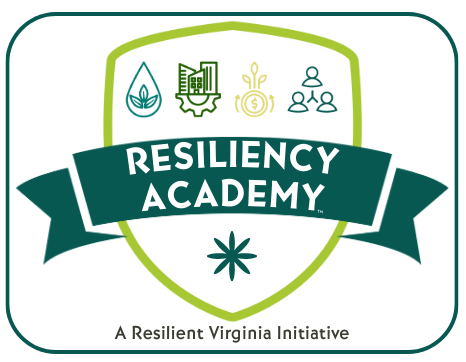
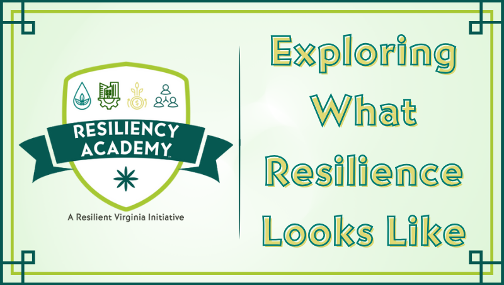
2026 Resiliency Academy
Exploring What Resilience Looks Like
March–December, 2026
This comprehensive webinar series explores the principles, tools, and strategies needed to understand and strengthen resilience in social, ecological, and community systems. Every session is designed to build sequentially, deepening understanding and skills over the course of the 10-session series.
Participants will examine how natural and human systems experience change and variability, analyze vulnerabilities and risks, and explore approaches for reducing hazards and promoting adaptive capacity.
The series emphasizes systems thinking, equity, and justice, providing practical guidance on decision-making, change management, and effective communication.
Through these sessions, attendees will gain the knowledge and skills to design inclusive, evidence-based strategies that enhance resilience across communities, organizations, and interconnected systems.
Our Next Event: Thursday, March 19
Change Happens: Making Sense of Variability Across the Systems We Depend On
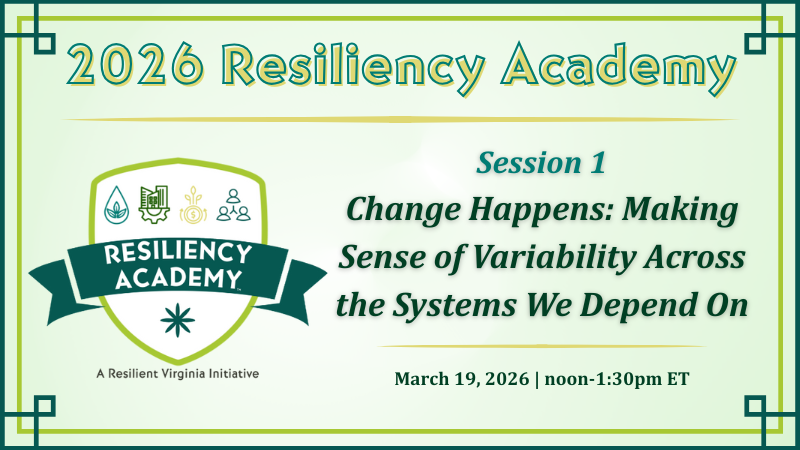
Date: Thursday, March 19
Time: Noon – 1:30 pm ET
Cost: $20
All Resilient Virginia partners are eligible for discounted event registration.
Learn more about becoming a partner and join today to receive a discount on Resiliency Academy registration.
About Our Speaker
Dr. Katie Trozzo
The 2026 Resiliency Academy webinar series explores the principles, tools, and strategies needed to understand and strengthen resilience in social, ecological, and community systems. Every session is designed to build sequentially, deepening understanding and skills over the course of the 10-session series.
The first session explores why and how variability and change occur across the four interdependent pillars of resilience, with a focus on the dynamic interactions between natural and human systems. Participants will gain a clear understanding of how social, economic, and ecological systems experience and respond to change, and how these shifts influence one another over time. The session also examines key drivers and patterns of variability, equipping attendees with a holistic framework to better analyze, anticipate, and respond to change across complex, interconnected systems.
2026 Resiliency Academy Topics
MARCH
Change Happens: Making Sense of Variability Across the Systems We Depend On
APRIL
From Change to Impact: Identifying and Reducing Hazard Pathways
MAY
Risk and Vulnerability Explained: How Lives, Systems, and Perceptions Shape Outcomes
JUNE
Proactive Resilience: Planning, Adapting, and Mitigating Hazards Before They Strike
JULY
Seeing the Bigger Picture: How Systems Thinking Builds Resilient Communities
AUGUST
Closing the Opportunity Gap: Ensuring Equitable Access to Essential Resources
SEPTEMBER
The Essentials of Change Management: Guiding Communities Toward Resilience
OCTOBER
Understanding Decisions: How Individuals, Organizations, and Political Systems Shape Resilience
NOVEMBER
Building Shared Meaning: Communication Approaches for Multi-Sector Resilience Efforts
DECEMBER
Putting It All Together: Showcasing Resilience in Action
Resiliency Academy Archives
Climate and Hazard Mitigation Planning
SPRING AND FALL 2024
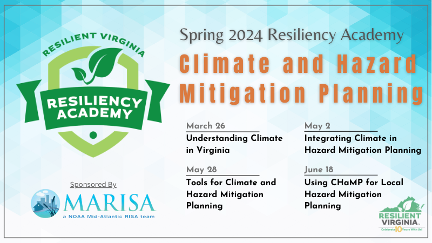
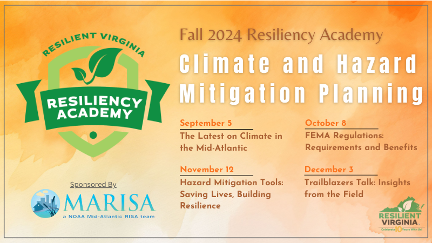
Components of a Resilient Community
SPRING AND FALL 2022
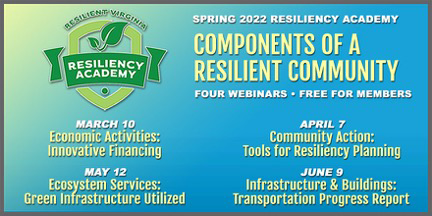
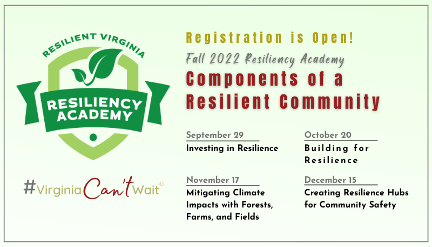
Funding Resiliency Programs
SPRING 2021
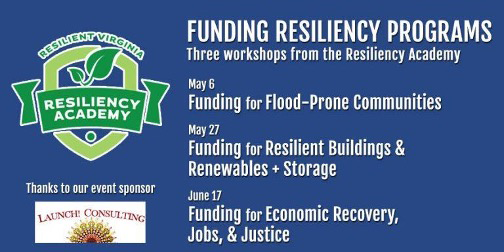
Four Resiliency Planning Guides
Fall 2020
